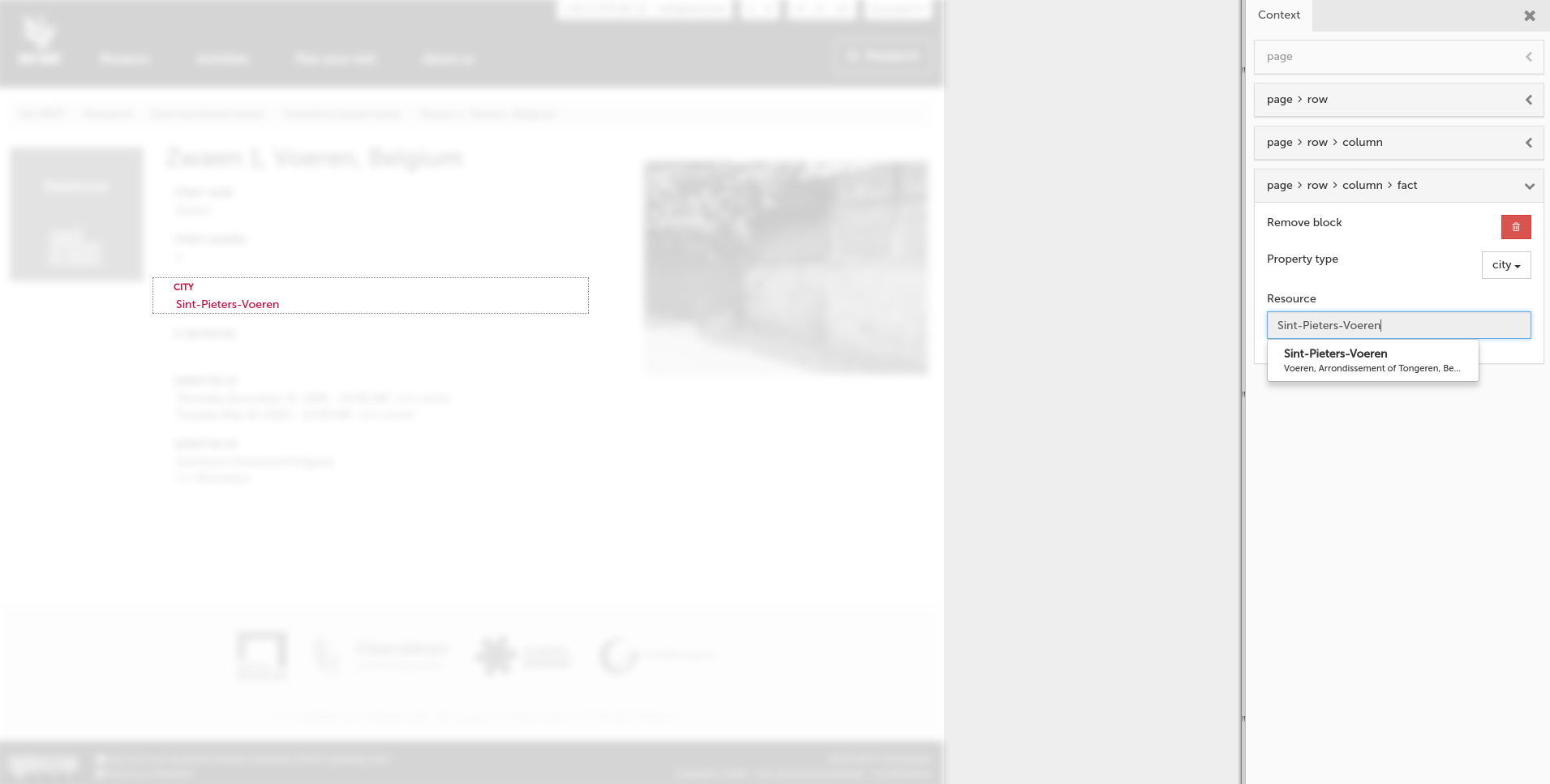- From: Bram Biesbrouck <bram.biesbrouck@reinvention.be>
- Date: Thu, 19 Oct 2017 15:39:41 +0200
- To: Jean-Marc Vanel <jeanmarc.vanel@gmail.com>
- Cc: Linking Open Data <public-lod@w3.org>
- Message-ID: <CAMiV4rmL4uRfrei=qWGDYCrBsC-iCVx4=OZE9HqhBJ6ONJCo_g@mail.gmail.com>
On Thu, Oct 19, 2017 at 9:19 AM, Jean-Marc Vanel <jeanmarc.vanel@gmail.com> wrote: > I see what you mean, and I saw that your application exposes the triples > as RDFa. > I have more questions: > > - can your application import triples from the LOD (and display, > reason, etc) ? > > Yes, though for now, this is only implemented in the Fact-block ( https://github.com/republic-of-reinvention/com.beligum.blocks.imports.fact). A "fact" in Stralo is actually a "formal statement", defined by a (server-side) RDF mapping. See this page as an example: http://www.mot.be/resource/Bakehouse/zwaen-1-voeren-belgium?lang=en There, you can see the page is about a Bread oven (the MOT keeps an inventory of existing and lost bread ovens) and the fact "City" references an external ontology (Geonames). I'm attaching a screenshot of what the admin mode of that page looks like: we implemented the links to external ontologies as autocomplete boxes: users just start typing and the backend of the autocomplete-box communicates with one or more LOD ontologies. When the users selects something from the autocomplete, the URI of that external resource is inserted into the RDFA and the remote RDF triples are copied into the local triplestore (for safety). When you click the resource (see example above), the server decides what to do with it (in this case, redirect to the geonames page). We haven't implemented any reasoning yet, but there's a full SPARQL endpoint API (not public/RESTful yet), so it's on our TODO. > > - a standard SPARQL database is not present, and the Stralo site > mentions "[instead of] storing all information in a triplestore > <https://en.wikipedia.org/wiki/Triplestore>, we have built in native > support for machine learning, grid computing, distributed storage, etc" ; > can you tell us more ? > > Yes, there is. The triple store is stored in "storage/pages/triplestore/data/" and is a vanilla Sesame native sail (rdf4j-sail-nativerdf), so everything eventually ends up in an "old-fashioned" triplestore with a nice SPARQL endpoint. On top, we added a specialized indexer (currenly based on Lucene) to speed things up. I know there's a Sesame (or RDF4j) sail for that, but we decided to write our own. > > I didn't see a Fact-block here : > https://github.com/republic-of-reinvention/com.beligum. > blocks.core/tree/master/src/main/java/com/beligum/blocks > That's right. Every block has it's own repository, so you can cherry pick which ones you want to include in your project and which not. Most of them (currently all of them, actually) are grouped in "the pack" for easy management, see https://github.com/republic-of-reinvention/com.beligum.blocks.imports.pack I hope this starts to answer some questions. We're busy writing the docs, I hope to put new ones online soon, but needs to structure it all a bit first. all the best, b.
Attachments
- image/png attachment: Screenshot_20171019_152855.png

Received on Thursday, 19 October 2017 13:40:25 UTC